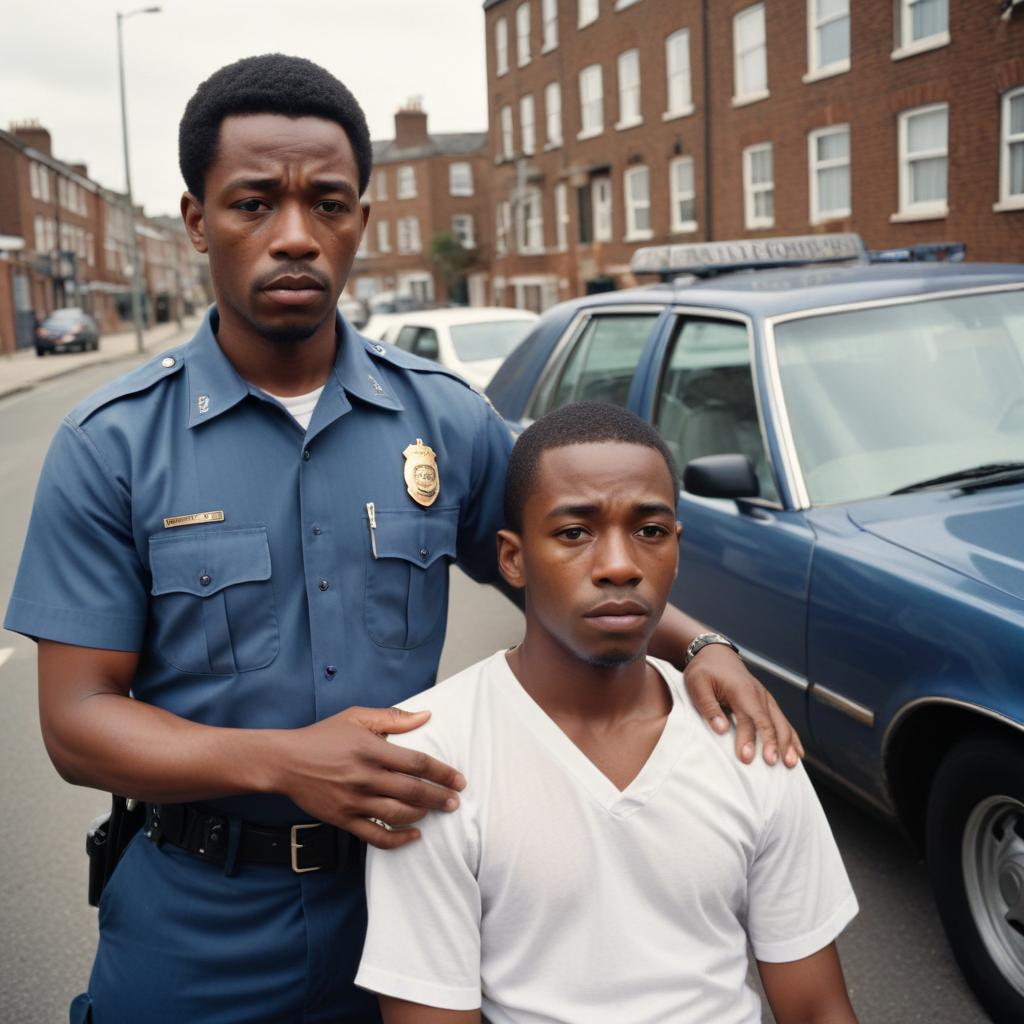Lee Lawrence, whose mother was shot and paralyzed by police in 1985, recounts a recent distressing police stop involving his son, reigniting his family's generational struggle against racial injustice. He discusses his work through the Cherry Groce Foundation, his books exposing systemic racism in policing, and his unwavering fight for accountability and reform.
Lee Lawrence experienced a distressing encounter when an undercover police vehicle pulled over his son, Brandon, shortly after picking him up from the hospital. This incident brought back painful memories for Lawrence, whose mother, Cherry Groce, was shot and paralyzed by an armed police officer in a botched 1985 raid, sparking the Brixton uprising. Despite the officers' claims of a reason to stop them proving unfounded, the event deeply affected Lawrence, highlighting the ongoing reality of racial profiling for his son. Fueled by his family's trauma, Lawrence founded the Cherry Groce Foundation in 2016, where he conducts training for police recruits and senior leaders on racial bias, diversity, and restorative justice. His memoir, 'The Louder I Will Sing,' details his family's fight for justice after his mother's death in 2011, which an inquest ruled was contributed to by serious police failures. He is now publishing his second book, 'The Colour of Injustice,' a historical account of the over-policing and under-protection of Britain’s Black community, citing numerous cases of racial prejudice from the 1700s to the present day, including alarming statistics on disproportionate force and stop-and-search rates against Black people. Lawrence's childhood ended the day his mother was shot. He describes the traumatic raid, his mother's two-year hospitalization, and his subsequent role as her young carer, facing punishment at school instead of support. Negative interactions with police continued through his teens, including being called a 'monkey' during an arrest. It wasn't until after his mother's inquest in 2014 that he began to experience a different side of the police, eventually undergoing therapy to address his childhood trauma. He criticizes the lack of accountability within the police force, noting that no one was imprisoned for his mother's shooting. The family's fight for justice eventually led to restorative justice efforts, including an apology from the Met and compensation. While the Met agreed to some of the family's requests, including an award in Groce's name and a program to support victims of bad policing, not all promises have been fulfilled. Lawrence remains optimistic, focusing his energy on individuals within the force and community support, recognizing the slow pace of institutional reform. He emphasizes the critical need for awareness of past injustices to prevent history from repeating itself, especially amidst current anti-immigrant rhetoric. His son's proactive measures to carry ID to avoid issues with police further intensifies Lawrence's mission to fight for change, fulfilling a battle his mother, focused on survival, couldn't undertake.



